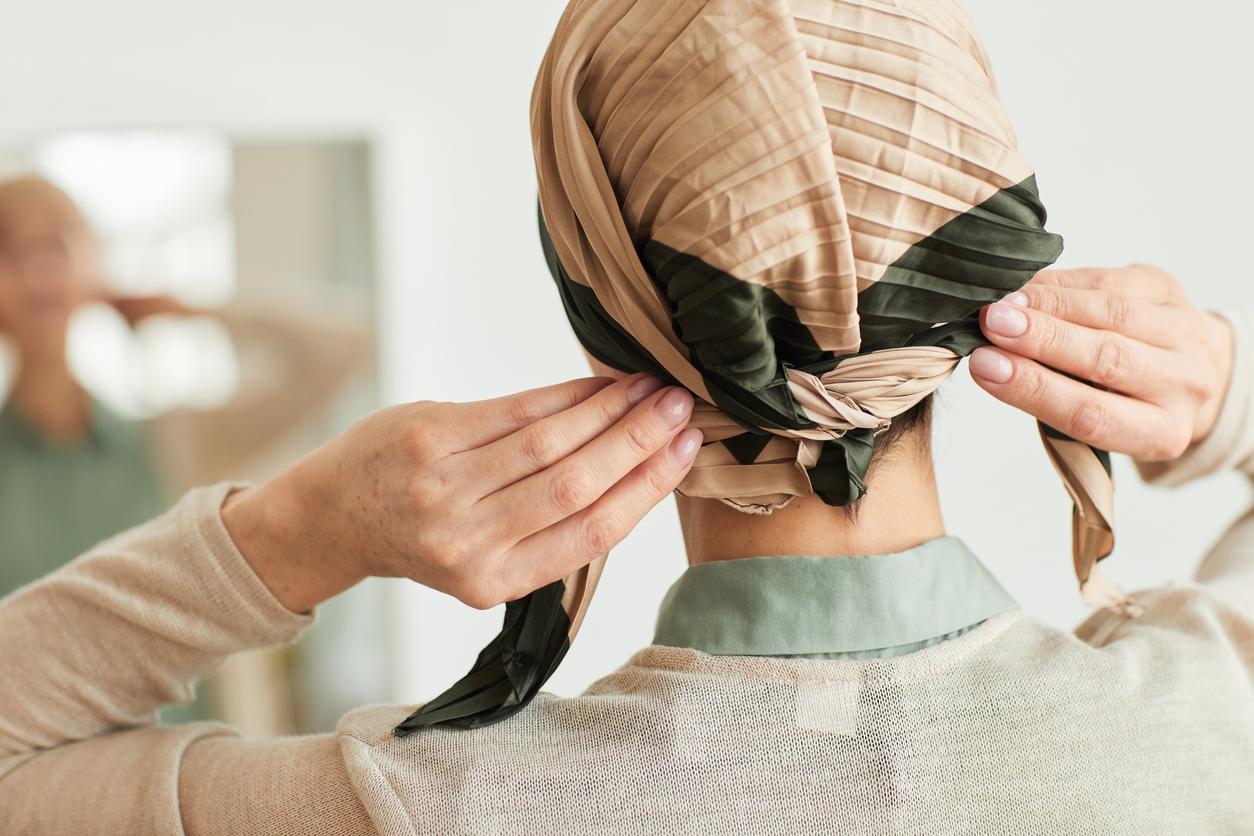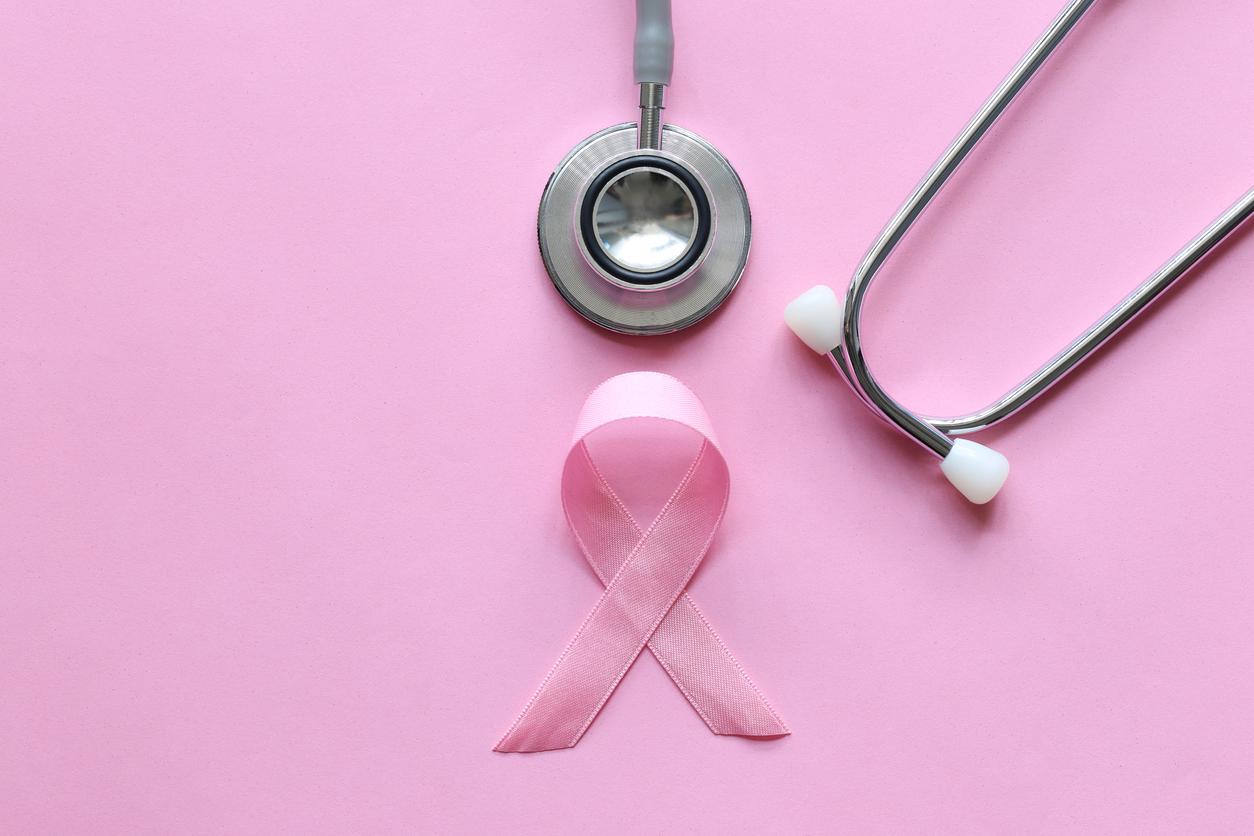Gayle Dean, a 72-year-old Australian, survived 5 cancers and the removal of 11 organs.

- Gayle is a five-time cancer survivor and had a total of 11 organs removed during treatments.
- She discovered her first cancer at age 38 during a free mammogram offered while she was shopping.
- Carrier of a mutation in the BRCA gene, the Australian participates in genetic research on cancer.
For her doctors, Gayle Dean is a medical miracle. And given his record, it is difficult to prove them wrong. The 72-year-old Australian has battled 5 cancers and had 11 organs removed during the battle.
Breast cancer discovered during a shopping trip
“Many doctors told me that they had never known anyone to have five different very serious cancers and that they had survived it,” the septuagenarian explained to the site news.com.au. I’m grateful to be alive.”
Gayle Dean’s first cancer was diagnosed almost by accident in 1991. While shopping with a friend, they passed a medical center and a sign “Free Mammograms Today”. “We had never heard of it before,” the survivor recalls. “We thought it might be fun.” But the result of the examination was far from trivial: she had a four-centimeter malignant tumor in her left breast. “I was 38, I felt great. I never had a major medical problem of any kind and yet here he was. But that’s the nature of cancer. It’s insidious.”
A single mother of three, she underwent a mastectomy and six months of chemotherapy afterward. In remission, she resumed the course of her life while being regularly monitored. But five years later, in 1996, during a check-up mammogram, doctors told her she had cancer in the other breast. To beat it, she had to undergo a mastectomy and chemotherapy again.
Although she once again overcame the disease, the respite was short-lived. In 1999, unexplained vaginal bleeding took her to her gynecologist. “The doctor was sitting on the bed and he had tears in his eyes. And he said, I’m so sorry, I’m so sorry. But the lining of your uterus is full of cancer.”, she remembers. Gayle then had no choice but to undergo a total hysterectomy.
Cancer: “I pray this never comes back to my life again”
After “spent the 90s trying to survive”, the former teacher has enjoyed 16 years cancer-free. She married her husband in 2003, saw her grandchildren born and traveled. “I almost never thought about cancer. It reminded me every day in the bathroom because of my scars, but it was something that was in my past.”
But cancer invited itself into his life again in 2015. During a routine colonoscopy, doctors discovered a pelvic tumor the size of a tennis ball. The treatment, which included radiotherapy and chemotherapy, destroyed the cancer cells, but it seriously damaged her digestive organs and the patient underwent a colostomy.
Last year, when Gayle Dean went to the hospital for a problem with her colostomy bag, doctors made another devastating discovery: She had a cancerous tumor on her left kidney. “It was a huge shock,” admitted the Australian. “But (my specialist) said: it’s not difficult to treat, we’re going to have to remove your kidney. It was a simple operation.”
After beating cancer 5 times and having several organs removed including her breasts, 26 lymph nodes, her uterus, her fallopian tubes, her ovaries, her gallbladder and her left kidney, the septuagenarian hopes that the disease will will leave it alone from now on. “I pray that this never comes up in my life again. But at the same time, I have to be pragmatic and if it ever does, I know what to do. I know how to fight.”
In 2017, tests revealed that she carried the BRCA gene mutation, which increases the risk of breast and ovarian cancer, among other things. She also decided to continue her fight against the disease by agreeing to participate in cancer studies. “They’re looking for genes that they haven’t found yet, genetic defects that would allow these cancers to develop and that will be very useful for future generations.”
She also calls on the general public not to delay and ignore available screenings. “Cancer can be found through tests, through check-ups, through doctors keeping an eye on you. Don’t ignore these things, these resources that are available.”

















